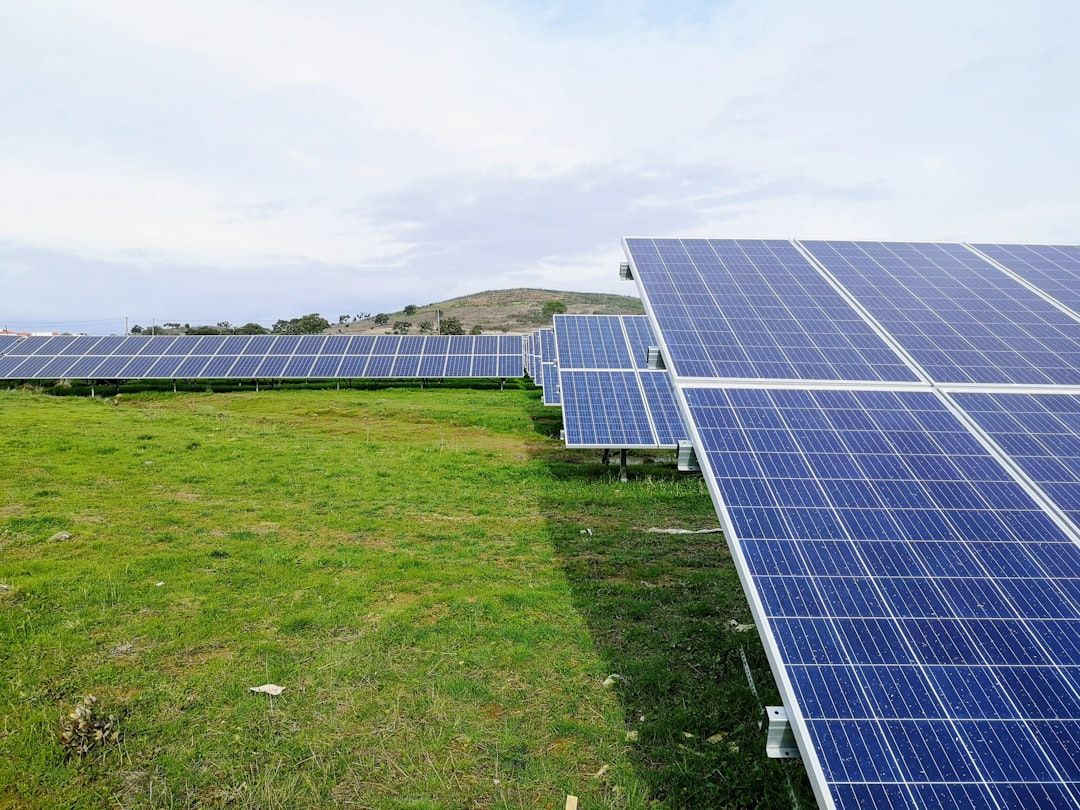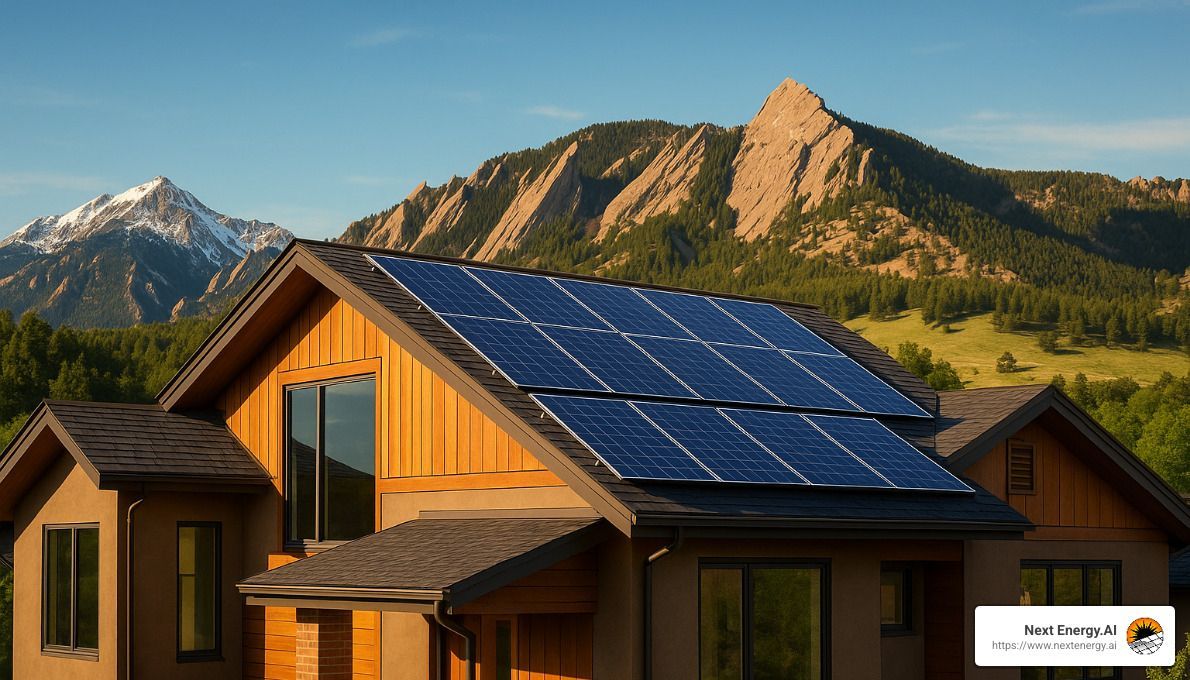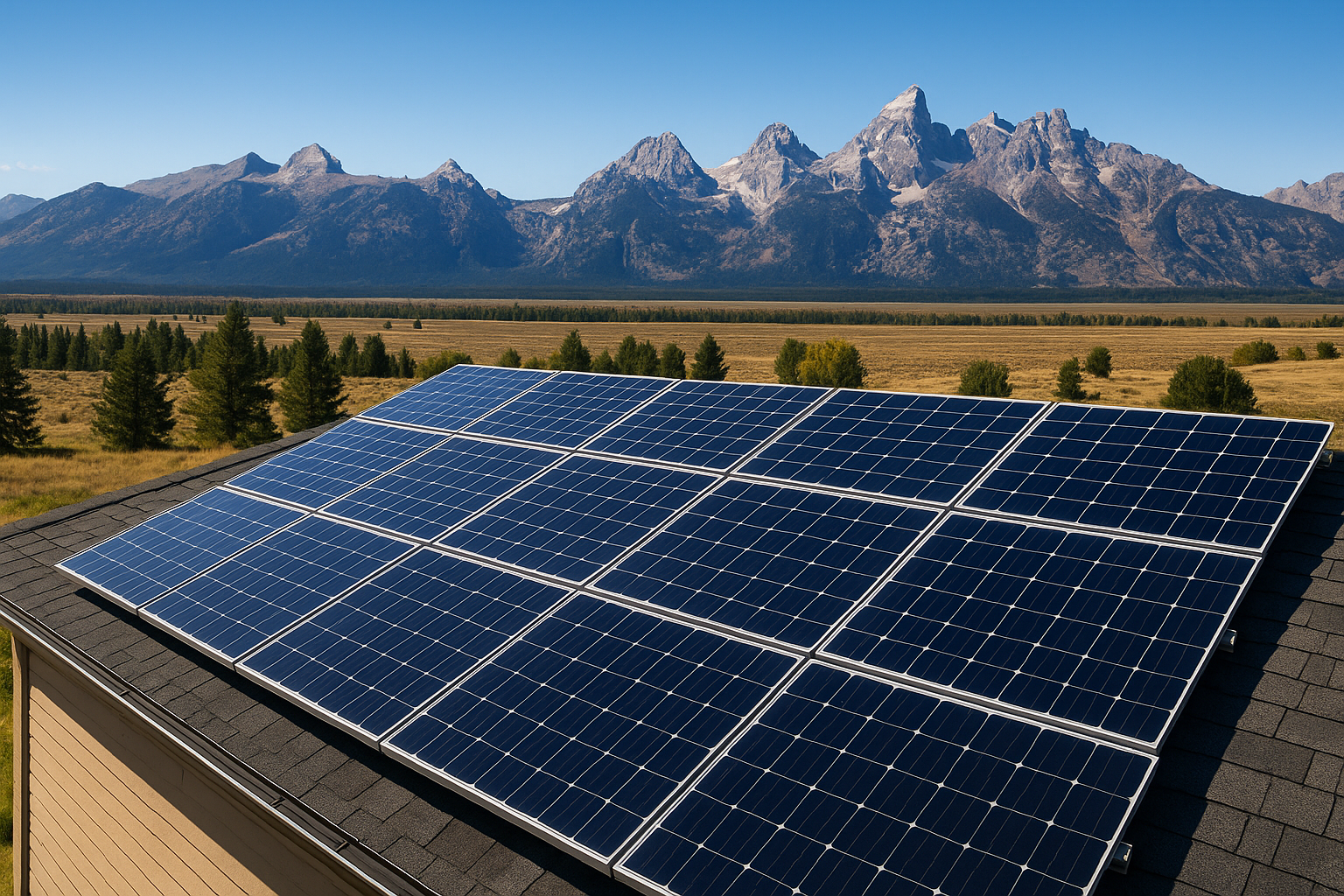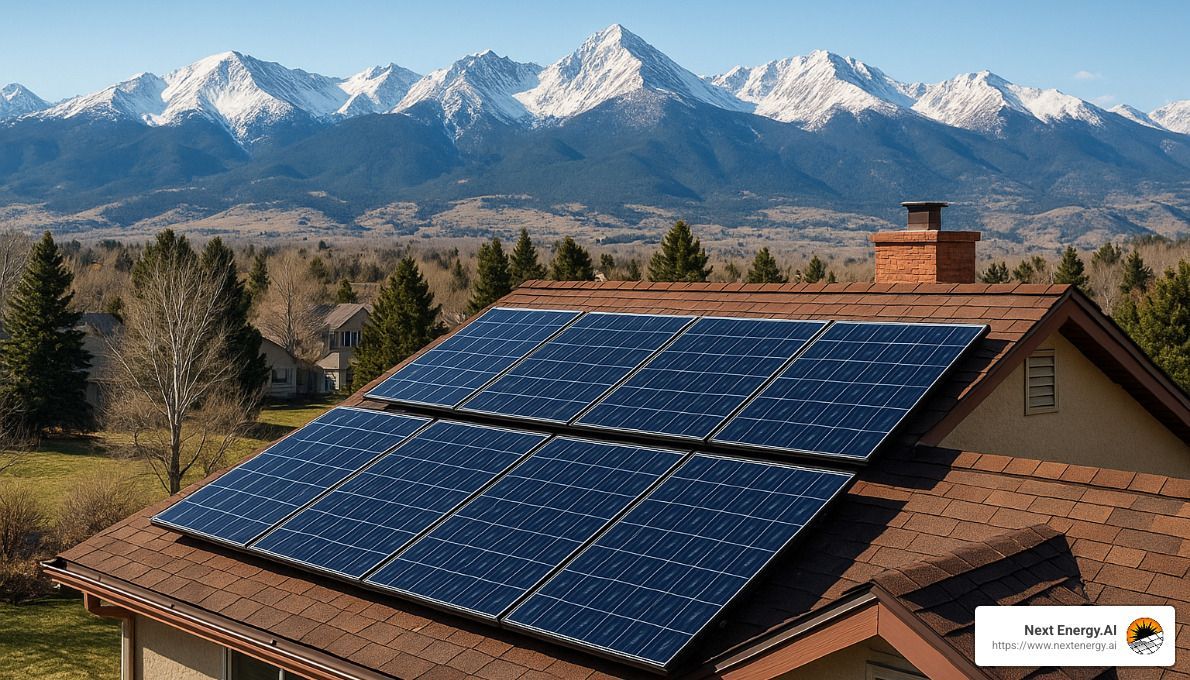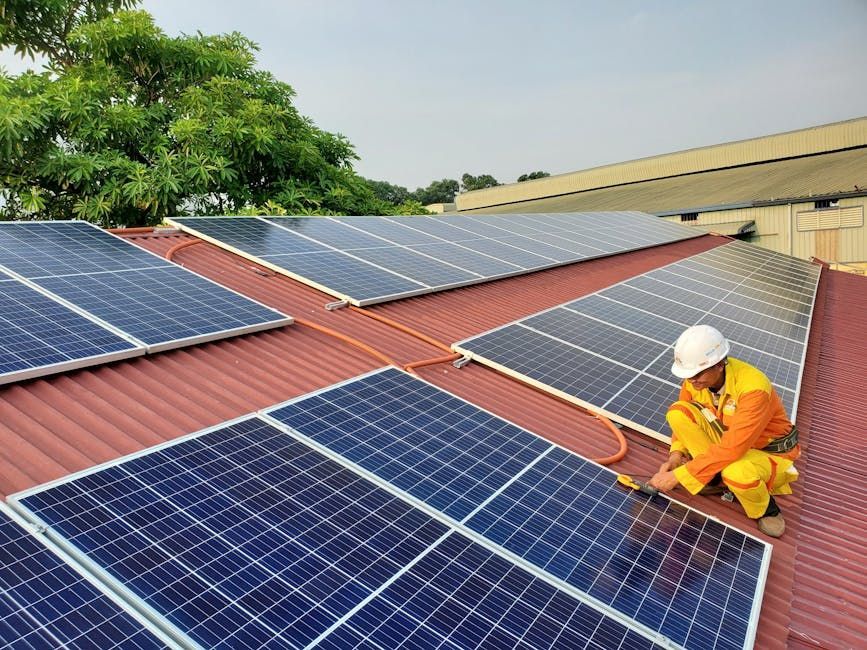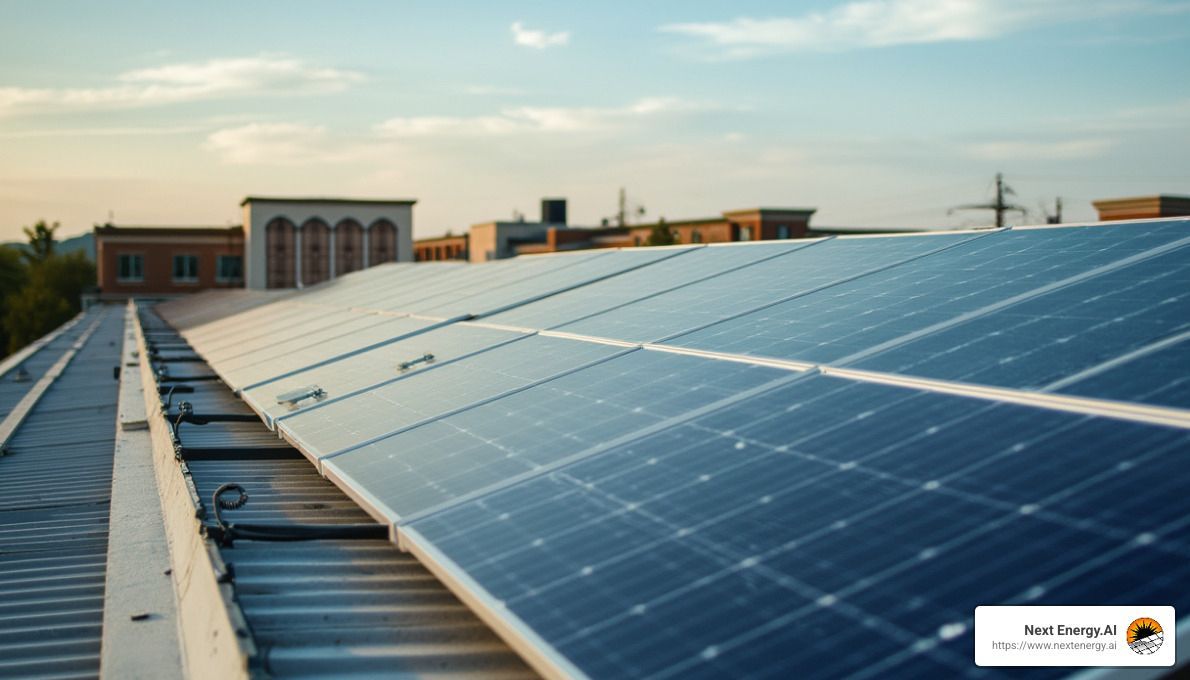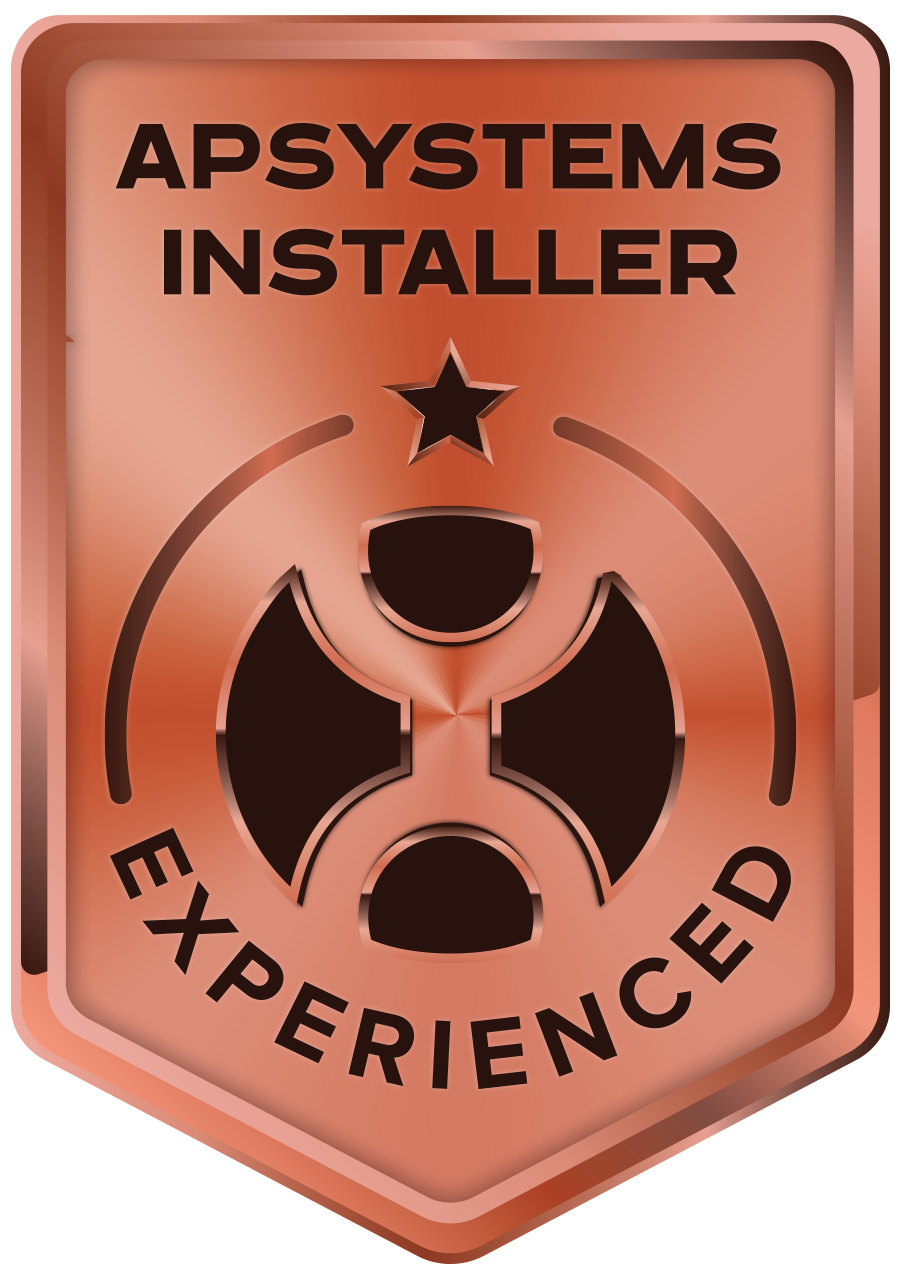Smart Energy Management: The Key to Sustainable Power
Smart energy management solutions are changing the way we approach sustainability and efficiency in energy usage. Homeowners and businesses are increasingly looking to smart energy management solutions for reducing energy bills and minimizing their carbon footprint. These solutions offer:
- Real-time insights into energy use
- Automation features that optimize consumption
- Integration with solar and smart home systems for seamless energy control
In today's energy landscape, making the smartest choices about how we use, manage, and conserve energy is crucial. These solutions not only help in cutting down costs but also in fostering an eco-friendly lifestyle, aligning with the global push towards sustainability.
I'm Spencer Gordon, the CEO of Next Energy.AI. With a rich background in renewable energy and a deep expertise in smart energy management solutions, I am passionate about empowering people in Northern Colorado with knowledge and tools to adopt efficient and sustainable energy systems.
Understanding Smart Energy Management Solutions
Smart energy management solutions are reshaping how we think about energy use, thanks to the integration of Internet of Things (IoT) technology. By connecting devices and systems, IoT enables seamless communication and control over energy consumption. This integration is key to optimizing energy use in both homes and businesses.
IoT Integration
IoT integration is at the heart of smart energy management. It connects various devices, such as smart thermostats, appliances, and lighting systems, to create a cohesive network. This network allows for automated control and monitoring, ensuring that energy is used efficiently.
For example, a smart home system can automatically adjust the thermostat based on weather forecasts or occupancy patterns, reducing energy waste. Similarly, businesses can use IoT to manage lighting and HVAC systems, turning them off when not needed.
Real-Time Monitoring
Real-time monitoring is a game-changer for energy management. It provides instant insights into energy usage patterns, helping users identify areas of waste and opportunities for savings. With real-time data, homeowners and businesses can make informed decisions about their energy consumption.
Energy monitoring systems, like those used by Next Energy.AI, offer detailed reports on energy usage. These reports help users track improvements and measure the impact of energy-saving initiatives over time.
Optimization
Optimization is the ultimate goal of smart energy management. By analyzing data collected through IoT and real-time monitoring, systems can automatically adjust energy usage for maximum efficiency. This can involve shifting energy use to off-peak times, integrating renewable energy sources, or employing demand response strategies.
For instance, businesses can implement load shifting to reduce energy costs by using battery storage during peak demand periods. This not only saves money but also reduces strain on the power grid.
In conclusion, smart energy management solutions leverage IoT integration, real-time monitoring, and optimization to create efficient and sustainable energy systems. These technologies empower users to take control of their energy use, leading to cost savings and a reduced environmental impact.
Now that we've explored the fundamentals of smart energy management solutions, let's dig into the benefits they offer for both homes and businesses.
Benefits of Smart Energy Management
Smart energy management solutions offer a range of benefits that extend beyond simple energy savings. By leveraging technology, these systems provide substantial cost savings, improve energy efficiency, and support sustainability goals.
Cost Savings
One of the most compelling benefits of smart energy management is the potential for cost savings. By optimizing energy use, businesses and homeowners can significantly reduce their utility bills. According to a survey by EnergyCAP, users of their energy management software reported an average of 7.5% annual savings on their total utility bill spend.
These savings come from a variety of strategies, such as shifting energy consumption to off-peak times, using energy storage solutions, and reducing demand charges. By integrating renewable energy sources like solar panels, users can further decrease their reliance on expensive grid electricity.
Energy Efficiency
Energy efficiency is at the core of smart energy management. These systems use real-time data and IoT technology to ensure that energy is used only when needed and in the most efficient manner. For example, automatic adjustments to heating, cooling, and lighting systems can prevent energy waste, while smart meters provide detailed insights into energy usage patterns.
The Smart Energy Analytics Campaign found that using advanced energy information systems can result in median annual energy savings of 3%, and up to 9% with fault detection and diagnostics. This shows the power of technology in enhancing energy efficiency.
Sustainability Goals
Achieving sustainability goals is increasingly important for businesses and individuals alike. Smart energy management solutions play a pivotal role in reducing carbon footprints and promoting environmentally friendly practices. By optimizing energy use and incorporating renewable sources, these systems help reduce greenhouse gas emissions and reliance on fossil fuels.
Moreover, adopting such solutions aligns with broader sustainability initiatives, such as the IEA's goal to triple global renewable generation capacity by 2030. This shift towards cleaner energy sources not only benefits the environment but also positions businesses and homeowners as leaders in the green revolution.
In summary, the benefits of smart energy management are clear: cost savings, energy efficiency, and progress towards sustainability goals. These advantages make smart energy management solutions an essential tool for anyone looking to optimize their energy use and contribute to a sustainable future.
Next, we'll explore the different types of smart energy management systems available for homes and businesses.
Types of Smart Energy Management Systems
When it comes to smart energy management solutions, there are several systems designed to cater to different needs and scales. These systems help manage energy consumption efficiently, whether at home, in buildings, factories, or entire communities. Let's dig into the four main types: HEMS, BEMS, CEMS, and FEMS.
Home Energy Management Systems (HEMS)
HEMS are custom for residential use, focusing on managing small-scale energy assets like electric vehicles, heat pumps, photovoltaic (PV) systems, and batteries. These systems enable homeowners to monitor and control their energy consumption in real-time, ensuring that they use energy efficiently and cost-effectively. For instance, a HEMS can automatically adjust your home's heating and cooling based on occupancy or time of day, reducing unnecessary energy use and lowering bills.
Building Energy Management Systems (BEMS)
BEMS are designed for larger buildings, such as offices or commercial spaces. They integrate the management of heating, ventilation, air conditioning (HVAC), lighting, and security systems. By using sophisticated algorithms, a BEMS can optimize energy usage across various systems, ensuring that energy is consumed only when needed. This not only cuts down on energy costs but also aligns with sustainability goals by reducing the building's carbon footprint.
Community Energy Management Systems (CEMS)
CEMS take energy management to a larger scale by integrating multiple HEMS and BEMS within a community. They enable holistic management of energy resources, allowing communities to optimize their collective energy consumption. By pooling resources and utilizing shared renewable energy sources, such as community solar arrays, CEMS can improve energy independence and resilience. This approach also supports community-wide sustainability initiatives, making it easier to achieve shared environmental goals.
Factory Energy Management Systems (FEMS)
FEMS are crucial for industrial settings, where energy consumption is typically high. These systems help factories and manufacturing plants optimize their energy generation and usage. By monitoring energy flows and identifying inefficiencies, a FEMS can significantly reduce operational costs. Additionally, it allows for better integration of renewable energy sources and energy storage solutions, supporting the industry's move towards greener operations.
Each of these systems plays a vital role in managing energy efficiently and sustainably. By selecting the right type of energy management system, whether for a home, building, community, or factory, users can maximize their energy savings and contribute to a more sustainable future.
Next, we'll explore how these smart energy management solutions can be applied to homes and businesses to automate processes and respond to energy demands.
Smart Energy Management Solutions for Homes and Businesses
Smart energy management solutions are changing how we use and save energy. Whether in homes or businesses, these solutions offer automation, energy monitoring, and demand response to improve energy efficiency and reduce costs.
Automation
Automation is at the heart of smart energy management. It allows systems to operate efficiently without constant human intervention. In homes, automation can adjust lighting, heating, and cooling based on occupancy or time of day. For businesses, automated systems can manage HVAC and lighting systems to ensure energy is used only when needed. This not only saves energy but also reduces utility bills.
Energy Monitoring
With energy monitoring, both homeowners and business owners can track energy usage in real-time. Devices like smart meters and energy monitors provide detailed insights into how much energy is being used and where. This data helps identify patterns and areas of high consumption, allowing users to make informed decisions about energy use. According to the Smart Energy Analytics Campaign, effective energy monitoring can lead to significant savings, with some systems achieving up to 9% energy savings.
Demand Response
Demand response is a strategy used to manage energy consumption during peak demand times. By shifting or reducing energy use during these periods, both homes and businesses can lower their energy costs and ease the strain on the grid. For example, a smart energy management system might delay the operation of non-essential appliances during peak hours or use stored energy from a battery system. This not only saves money but also contributes to grid stability.
By combining automation, energy monitoring, and demand response, smart energy management solutions offer a comprehensive approach to energy efficiency. These systems not only help users save money but also support broader sustainability goals by reducing overall energy consumption.
In the next section, we'll address some frequently asked questions about smart energy management solutions to help you better understand their benefits and how they work.
Frequently Asked Questions about Smart Energy Management Solutions
What are smart energy management solutions?
Smart energy management solutions are systems and technologies that help manage and optimize energy use in homes and businesses. They use advanced tools like IoT devices, sensors, and software to monitor and control energy consumption in real-time. These solutions aim to reduce energy waste, lower costs, and support sustainability by integrating renewable energy sources and automating energy-saving actions.
How do smart energy management systems work?
Smart energy management systems work by collecting data on energy usage through sensors and smart meters. This data is then analyzed to provide insights into consumption patterns and identify areas for improvement. The system can automate actions such as adjusting heating, cooling, and lighting based on occupancy or time of day to optimize energy use. It also enables demand response strategies, shifting energy use to off-peak times to reduce costs and ease grid pressure. For example, Sparkion’s SparkCore™ platform uses real-time data to ensure optimal energy distribution and maintain system uptime.
What are the benefits of using smart energy management solutions?
The benefits of using smart energy management solutions are multifaceted:
- Cost Savings: By optimizing energy use and reducing waste, these solutions can significantly lower utility bills. According to a study by EnergyCAP, users report an average of 7.5% savings on their total utility bill.
- Energy Efficiency: These systems help identify inefficiencies and automate energy-saving measures, leading to more efficient energy use.
- Sustainability Goals: By integrating renewable energy sources and reducing overall consumption, smart energy management supports sustainability initiatives and reduces carbon footprints.
- Informed Decision-Making: Real-time data and insights allow users to make informed decisions about energy use, enabling better planning and resource allocation.
- Improved Control: Users can automate and remotely control energy usage, offering convenience and peace of mind.
These solutions not only help save money but also contribute to a more sustainable future by promoting efficient energy use and reducing reliance on non-renewable resources.
Conclusion
At Next Energy.AI, we're committed to changing how energy is consumed and managed. Our AI-improved solar solutions are at the forefront of this change, turning traditional solar panels into intelligent energy management systems. By integrating advanced AI, we optimize energy usage, ensuring that every watt is used efficiently and effectively.
Our solutions are designed to meet the unique needs of our clients in Northern Colorado and Southern Wyoming. We use cutting-edge technology to provide personalized service and dedicated support, helping you transition to a more sustainable energy future. With our AI-improved systems, you gain real-time insights into your energy consumption, allowing you to make informed decisions and achieve significant cost savings.
Moreover, our intelligent energy management systems support sustainability goals by maximizing the integration of renewable energy sources. By reducing energy waste and automating energy-saving actions, we help you lower your carbon footprint and contribute to a cleaner environment.
Ready to start on your solar journey? Find how our AI-driven solutions can empower your home or business with clean, renewable energy. Visit our Go Solar page to learn more and take the first step towards a sustainable future.
In conclusion, smart energy management solutions are not just about saving money—it's about creating a more sustainable world. With Next Energy.AI, you can rest assured that you're part of a movement towards intelligent, efficient, and environmentally friendly energy consumption. Join us in powering the future with the sun!
